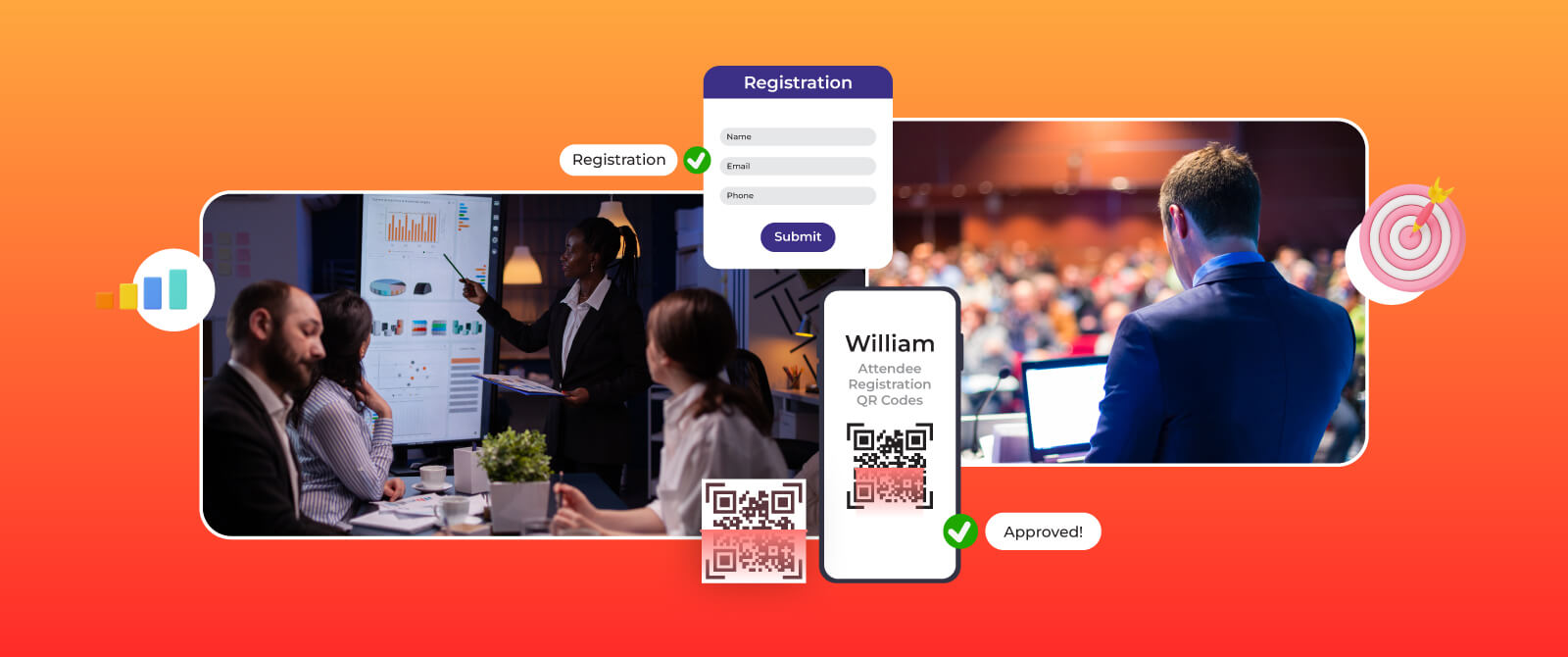In an era in which technology is transforming how we gather, religious events are not exempt. Large conferences, weekly services, or special celebrations, all these events can be hard to manage. These can be simplified by using creative registration and access solutions which in turn guarantees that every attendee goes through a smooth and satisfied experience. This blog explores how to streamline religious event management through modern solutions, focusing on religious event registration, event check-in systems, and event access management.
Understanding the Unique Needs of Religious Events
Religious events have different requirements than social and corporate events. Some examples are:
- Diverse age groups, from children to seniors
- Special accommodations for attendees with disabilities
- The necessity of a warm and welcoming environment
- Keeping a sacred and respectful atmosphere
To meet these requirements, careful strategies must be adopted when organizing events. Convenience, accessibility, and community engagement should be given priority in event management. Hence, all these aspects ought to be put into consideration to have a successful religious event.
The Role of Registration Platforms in Religious Event Management
Handling religious events which include a wide range from minor community gatherings to extensive conferences entails several things that can be made easier by the use of registration platforms. These platforms are essential for efficient, organized event management and enhance the experience for attendees and organizers. Here are the key roles that registration platforms fulfill in religious event management:
1. Seamless Religious Event Registration
The first step in assuring that the event is a success is to streamline the religious event registration process. A good registration platform should have:
- User-friendly interface: Easy navigation for all age groups.
- Mobile compatibility: Allowing participants to register using smartphones or tablets.
- Customized forms: Gather vital information like preferred sessions, special needs as well as dietary restrictions.
2. Integrated Communication
It’s important to communicate effectively to keep attendees in the know and interested. A robust event registration solution can facilitate:
- Automated emails and SMS notifications: Reminders, updates, and essential information.
- Social media integration: Promoting the event and encouraging community interaction
More efficient and focused on the participant does religious event management get by integrating such features.
Enhancing Event Access with Mobile Solutions
1. Mobile Event Apps for Religious Events
Mobile event applications have become a must-have for managing events. For religious events, they have a lot of advantages:
- Digital tickets and QR codes: Simplifying check-in and reducing wait times.
- Event schedules: Giving session information and updates in real time.
- Interactive maps: Assisting participants through enormous arenas or different places.
- Push notifications: Get immediate updates for any changes or important announcements.
2. Contactless Check-In Systems
After COVID-19, contactless solutions are more common. A contactless event check-in system for entrance control to events is an efficient method that ensures safety:
- QR code scanning: Fast and hygienic entry.
- Facial recognition technology: Improving security and reducing bottlenecks.
- Self-service kiosks: Minimizing physical contact between attendees by allowing them to check in themselves.
Enabling the use of these innovations improves event access management and as such improves religious event registration and check-in.
Leveraging Data for Enhanced Experience
The collection and analysis of data from registration and participation can offer precious enlightenment for religious event management.
- Understanding attendee demographics: Tailoring future events to meet their needs.
- Tracking engagement levels: Identifying popular sessions and areas for improvement.
- Feedback collection: Gathering the opinions and suggestions of attendees through surveys and polls.
Data-based decisions are instrumental in optimizing the extensive and efficient management of religious events.
Creating a Community-Centric Approach in Religious Event Management
One of the important things about religious events is that they give a sense of community. It is possible to make these experiences more meaningful and memorable using technology.
- Virtual networking: Allowing guests to interact and network throughout the event and beyond or On-site, off-site, and post-event interacting.
- Live streaming and recording sessions: Making it possible for those who cannot attend events in person to participate through live streaming services.
- Online discussion forums: Encouraging continued conversation and the creation of communities.
A community-centered method of religious event organization not only improves the events but bonds the community together.
To learn more: Virtual Networking Events
Key Features of Effective Religious Event Management Solutions
For smooth religious event management, it is important to include core aspects that cater for religious meetings’ unique requirements, as shown in these vital ingredients:
User-Friendly Religious Event Registration Platforms
A user-friendly religious event registration platform used in the realm of religion is vital in the attainment of a stress-free registration process. Always look out for platforms that have the following features:
- Simple navigation: Easy for all age groups to use.
- Mobile compatibility: Allow registration using smartphones and tablets.
- Customizable forms: Customized to collect important information for the event.
To read more: Online Event Registration Platform
Comprehensive Event Access Management
Effective event access management is crucial in ensuring a seamless experience for all attendees. These are some things you should know about:
- Digital tickets and QR codes: Quick and efficient entry.
- Interactive venue maps: Giving a hand to guests when navigating.
- Real-time updates: Communicating any changes to conference participants.
Efficient Event Check-In Systems
Important for managing large crowds and ensuring smooth entry is the need for a proficient event check-in system. Some of the features include:
- Contactless check-in: Minimizing physical interaction and streamlining the process.
- Self-service kiosks: Permitting guests to check in on their own.
- Facial recognition: Improving safety by minimizing the time spent when waiting.
Furthermore, a positive experience for all participants could be achieved by ensuring more sensible religious event management as can be facilitated by incorporating these features.
Best Practices for Religious Event Management
To manage religious events effectively, one has to have some level of awareness concerning methods that touch exclusively on religious gatherings. Some of the suggestions shown below offer ways of coming up with some strategies that are aimed at achieving positive results in organizing religious events:
Planning and Preparation
For successful religious event management, thoroughly plan and prepare ahead of time. Think about:
- Define goals and objectives: Clearly outline the event’s goals.
- Identify target audience: Understand who will be attending and what their needs are.
- Create a detailed plan: Indicate all the required procedures and times it will take to organize the event.
Leveraging Technology
Modern religious event management is highly dependent on technology. The following are ways to make use of it optimally:
- Use event registration platforms: Make the process of registration simpler and gather the required data.
- Implement mobile event apps: Boost communication with attendees so they feel more involved.
- Utilize data analytics: Gather insights to make future events better.
Engaging Attendees
Creating a memorable religious event requires the participation of attendees. Strategies include the following:
- Provide clear communication: Provide timely updates and stay in touch with invitees through reminders.
- Offer interactive sessions: Use interactive activities to get people involved and interested.
- Gather feedback: Gather back information from the people who attended so we can have better future events.
By following such strategies, religious event management will become more efficient and effective resulting in successful and memorable religious gatherings.
Conclusion
If religious event management is refined using new kinds of registration and access solutions, it not only makes other things simpler but also makes the experience better for all those who attend. Modern advancements in technology make it possible for event planners to establish a more comprehensive, effective forum that aims to make every participant feel wanted. The tools and tactics that are apt for each occasion, big or small, can change it into a fruitful religious event.
In-Person Events!
Simplified Event Planning and
Execution With Our Event Tech Suite




















